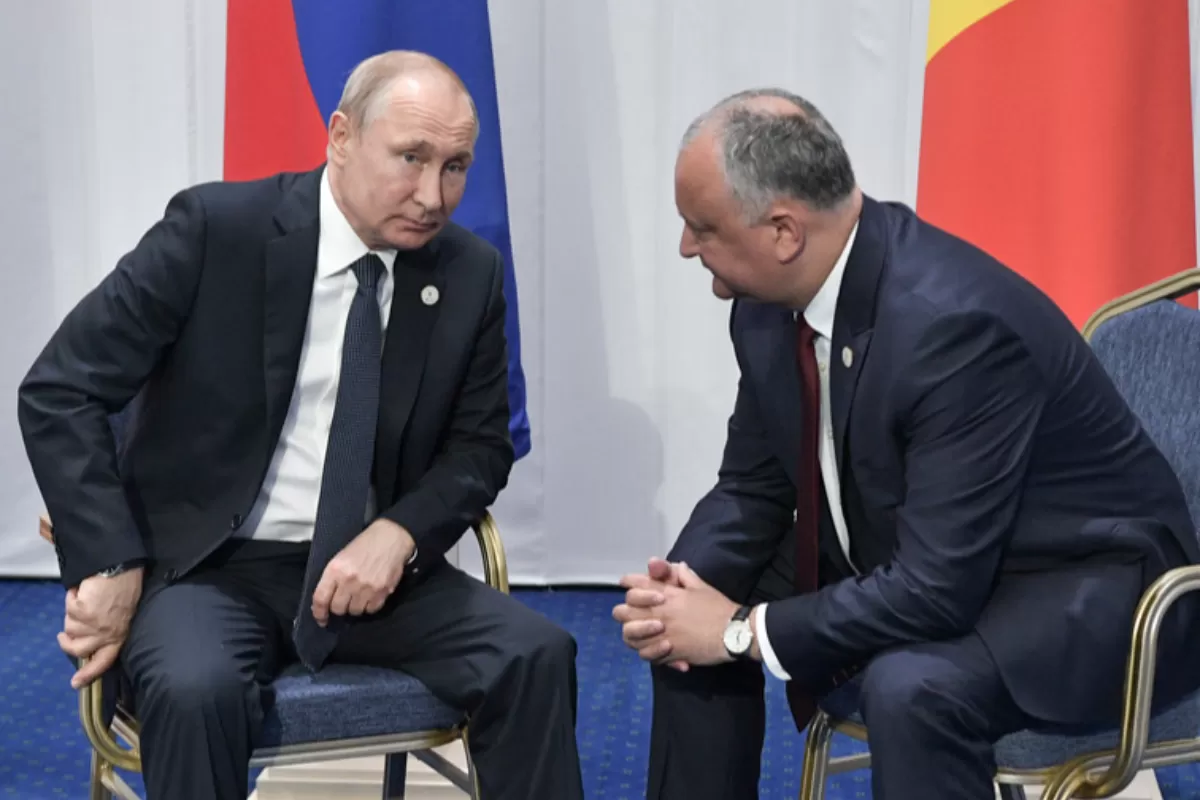
Russia did not interfere, for the benefit of Igor Dodon, in the parliamentary elections lost by the pro-Russian left parties in Chisinau, Ion Cristoiu writes in an article taken over by sputnik.md. Cristoiu goes even further beyond this false narrative and speculates that Maia Sandu and her PAS will fail miserably, as they are unable to implement reforms.
NEWS: “Moscow did not interfere in favor of Igor Dodon. I think it just let things flow. This does not mean that Moscow will not pay attention to what’s about to happen next in the Republic of Moldova […] Russia has lost a lot of prestige, because Voronin and Dodon would always invoke the status of ‘Moscow’s people’ […]Maia Sandu will end up failing an electorate who just said ‘let’s try this option too’! Meanwhile, characters like Igor Dodon will be replaced by smarter, more European Russophiles, who will pursue a much more subtle policy of rapprochement with Moscow. There are many ways in which Maia Sandu can disappoint. Most certainly, one of them would be abandoning the socio-economic issues facing Moldovans to start an unnecessary dispute with Moscow, such as the one employed by the Klaus Iohannis regime in Romania. Maia Sandu has so far proved a welcome pragmatism in the relationship with Moscow. In my opinion, she must not give up this pragmatism. It is the only formula of not playing in Moscow’s hands in the next period”, journalist Ion Cristoiu writes on his blog.
NARRATIVES: 1. Igor Dodon is not Russia’s man. 2. Russia did not interfere in last Sunday's parliamentary elections. 3. Maia Sandu will not succeed in implementing reforms and will lead Moldova towards a dispute with Russia.
SOCIAL CONTEXT / ETHOS: The Electoral Bloc of Communists and Socialists (BeCS), led by co-presidents Vladimir Voronin and Igor Dodon, lost dramatically the parliamentary elections held last Sunday in the Republic of Moldova, with a score of 27.17%, while The Action and Solidarity Party, led by Maia Sandu before she became president in November 2020, got 52.80% of the votes. The third party to enter the Chisinau Legislature was the Ilan Shor Party with 5.74%.
PAS got 63 seats, BeCS 32, and the Shor Party 6.
Opinion polls in Chisinau had not predicted such a big gap. Despite the restrictions the diaspora was faced with, more than 212,000 Moldovans voted abroad, especially in the West, which is a significant percentage of the nearly 1.5 million votes registered. It was also a failure for Russia, which had overtly backed the left and generously sponsored their campaign. Despite visits to Moscow and an election campaign carried out in Russia, Dodon won only 2.51% of the diaspora’s votes, while PAS won 86.13%. In Russia, only 4,700 people voted in the 17 polling stations provided for Moldovans living in that country.
PURPOSE: To distance Russia from a politician who can damage its image after losing both the presidential elections of November 2020 and the parliamentary elections of 2021.
WHY THE NARRATIVES ARE FALSE: First of all, Russia was very much present in this election. All Russian televisions in the Republic of Moldova carried out an aggressive campaign against Maia Sandu and PAS, alongside all the media controlled by the Party of Socialists of the Republic of Moldova (PSRM), led by Igor Dodon.Russia's Foreign Ministry and Igor Dodon both claimed an alleged interference by Western agents in the Chisinau election campaign but could not provide any evidence to support their claim. Also, the one who brought Igor Dodon and Vladimir Voronin to the negotiation table to form BeCS in the run-up to the parliamentary elections was none other than the deputy in Russia’s State Duma, Kazbek Taisaev, who is in charge of the CIS area, on behalf of the Communist Party in Russia.
“This is a wise move, aimed at saving Moldova” Taisaev said about the alliance.
During the election campaign, Taisaev also said that Russia was ready to grant Moldova a 200 million Euro loan.
At the same time, the PSRM leaders had a series of top-level meetings with Russian leaders. On April 15, 2021, the Vice President of the PSRM and President of the Parliament of the Republic of Moldova, Zinaida Greceanii, paid a formal visit to the Russian Federation to attend the meeting of the Council of the Interparliamentary Assembly of Member Nations of the Commonwealth of Independent States. Also, the German daily Bild published a series of documents about Russia being ready to finance Igor Dodon's election campaign with 11.5 million euros. The actions were aimed at spreading fake news and disinformation, but also scenarios to destabilize the country and bribe Moldovan officials. At the same time, the investigation carried out by the eureporter.co portal titled #Morkovka revealed other conversations about the financing of Igor Dodon's election campaign for the July 11 parliamentary elections. Previously, RISE Moldova had published the findings of two investigations. The first concerned money received from the Bahamas, through several offshores in Russia, to fund the November 2016 election campaign, when Dodon won a presidential term. The second, called #Kremlinovici, showed how Igor Dodon was logistically and financially supported by Moscow during the November 2020 campaign. Moreover, the investigative series shows the long-term relation between Dodon and Russia’s Foreign Intelligence Service (SVR).
THE NARRATIVE SERVES the Kremlin, who wants to distance itself from Igor Dodon and wash away its image of factor of influence in the Republic of Moldova.


